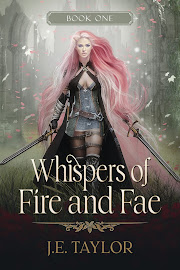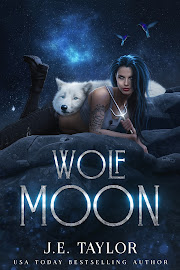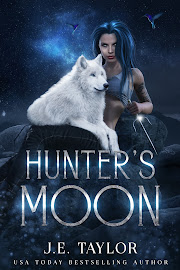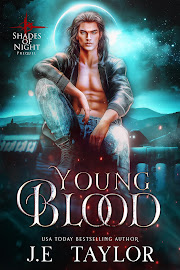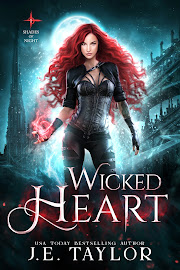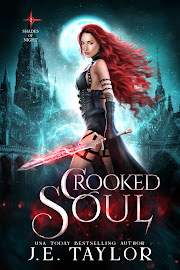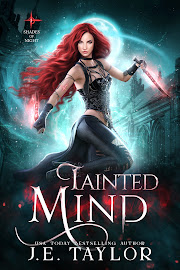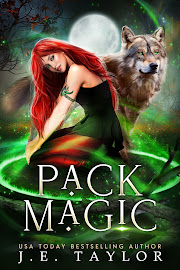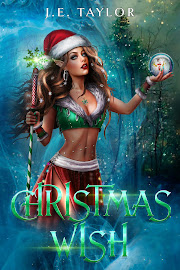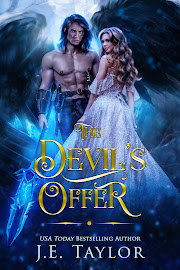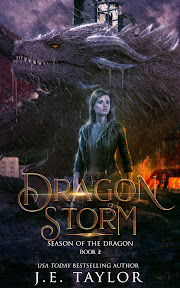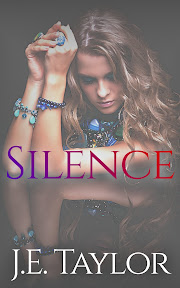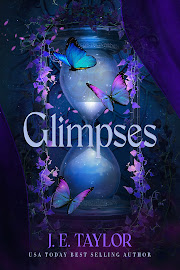Today I have the pleasure of hosting William Freedman.
William Freedman is a satirist who uses science fiction and fantasy tropes. He is author of Land That I Love and the soon-to-be-released Mighty Mighty, co-author with Ben Parris of Supernaturalz, contributor to the 2005 Spirit House chapbook to raise money for tsunami survivors, and a frequent program participant at genre conventions throughout the northeast U.S. His non-fiction bylines – covering everything from hot stocks for Investor’s Business Daily to the rise of distilled spirits for History magazine to Bram Stoker Awards weekend for Long Island’s Newsday – go back more than 20 years.
JET: Can you tell us about your most recent book?
WF: It’s an anthology called Age of Certainty and it gives ten authors’ answers to the question, “What if God existed?”
JET: What drew you to (genre)?
WF: I’ve always been interested in science fiction and fantasy, but mainly as tropes for my social and political satire. My second novel, a superhero spoof titled Mighty Mighty is coming out about the same time as Age of Certainty, but this anthology is a marked departure for me. First of all, this time around I’m an editor, not a writer. Secondly, I’m doing this with my tongue nowhere near my cheek. Although there are many instances of humor in this collection, it isn’t a joke book by any means. It’s a generally serious exploration of God as a speculative element in genre fiction.
JET: What’s been your most challenging hurdle on the road to publication?
WF: Here’s a rare case where actually finding the publisher wasn’t a problem. I have a longstanding and entirely cordial relationship with the wonderful people at Rebel ePublishers. I told them I had a gut feeling there’d be a market for this, and they were willing to invest the money if I was willing to invest the time. The call for submissions didn’t go as I expected, though. I requested stories premised on proof one way or the other about God’s existence or non-existence. I was surprised at how few stories took the hard-SF position that God is extraneous and, thus, is unlikely to exist. The few of these Analog rejects I did see were not of sufficient quality to make the final cut. Another hurdle was soliciting pre-orders. We gave Kickstarter a try, and it was a great learning experience, but ultimately we didn’t cross the finish line. We’re still giving away premiums to anyone who comes to the Rebel site (rebelepublishers.com) and pre-orders a bound edition. One thing that was surprisingly not a hurdle was finding the right illustrator. I worked with Elena Nazzaro a few years back on the Spirit House chapbook. I knew she’d be perfect for Age of Certainty. She was my one and only phone call.
JET: What was your favorite moment in the journey?
WF: Gotta go back about a dozen years, when I met James Morrow at a science fiction convention. I think it might have been the first con I’d ever gone to and Jim might have been the first big-name author to autograph a book for me and take the time to just hang out. He was promoting his Godhead trilogy, and his premise really resonated with me: God is dead; here’s the body. When I was in the editing process for Age of Certainty, I sent him a very polite, deferential email gushing with my enthusiasm for his work – which I confessed served as the inspiration for the whole venture – and would he please-pretty-please look over this inconsequential little collection and, if he see fit, give it a blurb? Would I be out of line asking for a few prefatory remarks we could use as a foreword? He declined, but instead he submitted a story that had never seen print before!
JET: Which authors had the most influence over you growing up?
WF: Growing up I read mostly non-fiction, although I’m steeped enough in Bible scholarship to feel qualified to edit Age of Certainty. I was a big Star Trek fan and would watch anything on TV that was rooted in sci-fi – not that there were all that many options back then. I read Jules Verne, H.G. Wells and Aldous Huxley, as assigned. I didn’t start reading science fiction until adulthood, when I fell under the spell of Bruce Sterling. John Varley became a favorite as did Orson Scott Card and William Gibson, and I started to catch up on Frederik Pohl, Larry Niven, Philip Jose Farmer, Robert Heinlein and Arthur C. Clarke. I read Isaac Asimov and Frank Herbert too, because everyone told me how great their books were, but I didn’t really form an attachment to their work.
JET: When did you know you wanted to take the plunge into the writing world?
WF: First grade, but I was too chicken-shit until I was established in a day-job career that would comfortably pay the bills. I have a lot of respect for the people who understood early on they needed this to make them happy, and that happiness beats security every time.
JET:What’s the craziest thing you’ve done in the name of book research? Most interesting fact you uncovered?
WF: Well, I’m here to pump Age of Certainty, but to answer that question honestly I have to talk briefly about Mighty Mighty. There’s a character in there, named Lugh, who’s a parody of the Marvel Silver Age hero Thor. The Marvel character spoke with Jacobean flourishes, as if he were reciting Shakespeare or the King James Bible and, I remember thinking at the time in my early teens, that there was a lot Thor wasn’t saying. The Bible was being written for religious stiffs, and Shakespeare had to bear in mind that there were lots of kiddies in the Globe Theatre’s stands. And, as we all know from personal experience, English is a language rife with expletives, pejoratives, curses, slurs, obscenities and other low usages. We probably have more words for “vagina” than the Inuits have for “snow”. I thought it would be funny to have a guy who spoke the way actual 17th-century folk spoke, especially those who, like Lugh, grew up in a workingman’s trade rather than being born into godhood. And I think it is funny – but it involved a lot of research. Can’t tell you how many times I had to scrub my browser history.
JET: Of all the novels and stories you’ve written - which one is your favorite? Why?
WF: I love them all equally. They’re all on sale now.
JET: Any advice (from a writer’s standpoint) for the novices out there?
WF: There’s a difference between ideas and craft. Learn what you can from other writers about craft. When they’ve reached the end of their expertise but you still feel you have more to learn, start hanging out with more accomplished writers. But even if you find yourself at Rick Castle’s card table, don’t let anyone else tell you what your ideas should be. Also, there are markets out there waiting for you. Of course, James Morrow can get published anywhere. Other Age of Certainty authors – Jennifer Rachel Baumer, Brandon H. Bell and James Hartley – have got impressive publication credentials. Meanwhile Patrick Evans, David J. Fielding, Ron S. Friedman, Brian K. Lowe, Ian R. Thorpe and Jeffrey Witthauer are largely unknown to genre fans, despite their creative successes elsewhere. Anthology and magazine editors are always looking for the right mix of experience to sell and novices to be able to brag about having introduced. New writers are always sought after – providing, of course, that what they’re writing is as fresh as their names.
JET:All right - now that I’ve hammered you with the big questions,
let’s tackle my favorite (and geeky) quick ten. . . starting with: Paper or Plastic?
WF: PayPal.
JET:Steak or Tofu?
WF: Tofu,
reluctantly
JET:Beach or Mountains?
WF: Beach. I’m a
lifelong Jersey Shore guy, and seeing the Casino Pier roller coaster collapsed
in the surf after Sandy brought me to tears.
JET:Country or Rock-n-Roll?
WF: Rock.
JET:Leather or Lace?
WF:
I
don’t see that as an either/or.
JET:Angels
or Demons?
WF:
Demons
JET:Paper
or Digital?
WF:
Paper.
JET: Silent Film Classics or Cheesy B Rated
Horror?
WF:
Cherchez la fromage!
JET:Twilight or True Blood
WF:
Buffy.
JET:Coffee or Tea?
WF: Coffee, unless
chai is an option.
JET: Thank you for indulging me. Before we wrap this up, can you tell us what you're working on now? What's next?
WF: Rebel is publishing Mighty Mighty first as a series of three short ebooks, then they’ll be compiled in a bound format. I’ve got a screenplay I’d like to see produced, and three or four novels in various states of disrepair. I’d also like to get some short fiction in print.
Thank you so much for
taking the time to chat on my blog. Folks,
you can find out more
about William Freedman and his work at the following places:
Rebel’s bookstore: http://rebelepublishers.com/
William Freedman’s blog: https://auctorlanxsatura.wordpress.com/
Until next time,
Ciao
JET



